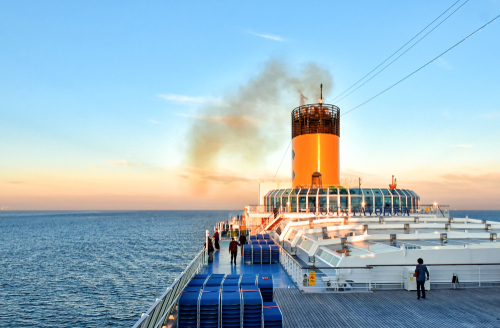The 0.5% sulphur limit is valid for ships equal to or greater than 400 gross tonnage operating in Venezuela, but vessels under the special permit regime, engaged in coastal and domestic navigation, will continue to use fuel by national supplier, until there is availability of IMO-compliant fuel.
This is according to a Circular by GlobalPandi correspondents provided to Britannia Club, which updates operators on compliance with low sulphur regulations when trading in Venezuelan waters.
[smlsubform prepend=”GET THE SAFETY4SEA IN YOUR INBOX!” showname=false emailtxt=”” emailholder=”Enter your email address” showsubmit=true submittxt=”Submit” jsthanks=false thankyou=”Thank you for subscribing to our mailing list”]
Although Venezuela has not ratified MARPOL Annex VI and is not included in any emission control area (ECA), the National Institute of Aquatic Spaces (INEA) in Circular No. 19 of December 2019 informed that, as from 1 January 2020, the fuel used by vessels equal to or greater than 400 gross tonnage and all fixed or floating oil rigs and other platforms in their operations must contain a maximum of 0.5% m/m of sulphur, except for ships that have scrubbers installed.
However, vessels of Venezuelan flag and foreign flag under the special permit regime, engaged in coastal and domestic navigation, will continue to use the fuel supplied by the national supplier, until there is availability of fuel in compliance with the IMO Resolution, the Circular informs.
As for the Port State Control and the Port Captaincy, in their respective visits to ships, must verify compliance with the regulations, checking the validity of the certificate and efficiency plan, bunker delivery notes, books of hydrocarbon registration, safeguarding of fuel samples, laboratory test reports, and when required, they may take fuel samples for laboratory analysis and verify the sulphur content provided in Appendix VI of the MARPOL Annex VI.
In case of non-compliance, the Aquatic authority will inform the respective flag State, might set a period of time to correct the deficiency and, if necessary, impose other measures provided for in the law,
…the circular explains but is not clear when referring to samples for laboratory analysis and subsequent steps, nor about the correction of deficiencies.
A key question regarding the exhaust gas cleaning system is whether vessels berthed at domestic ports may operate their scrubbers in open-loop mode.
It is important to point out that there are no local regulations regarding permissible ECGS and their use in closed or open loop mode, so if the vessel is fitted with a hybrid system it would be recommendable using it in closed loop mode while at the port, just as a precautionary measure,
…GlobalPandi advised.

































































